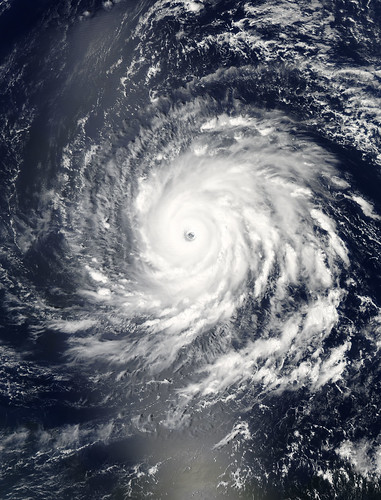
photo by Nasa Goddard Photo and Video of Hurricane Igor last year
I decided to write out a few of my suggestions because my vlog turned out to be so long! The first and most important thing I want to say is you cannot over-prepare. If you get supplies and don't end up needing them, what have you lost? If we don't have a significant storm or loss of power, we just use our hurricane batteries, food and water over the next several months. Here are some of my thoughts on what to do if a hurricane is coming to your area.
- Don't forget that hurricane strength winds can last until a storm is well inland. Just because you are not along the immediate coast does not mean you shouldn't prepare. Just ask Charlotte, NC about Hurricane Hugo.
- If you can't park your car in your garage, park it car out of range of trees, even if it means parking it in the middle of your beautiful lawn. Some trees break off and some uproot and fall. You can't move your house but you can safeguard your car.
- Be sure to gas up your car. If you have to evacuate, you don't want to have to stop for gas. If your area suffers significant damage, it might be several days before gas stations have power to pump gas.
- Food supplies for 3 days and water(a gallon per person per day)for 7 days. We also make sure we have propane for the grill. If we lose power we can grill meats from the freezer before they go bad.
- Take a walk around your house and see what a storm might pick up. Potted plants, birdfeeders, lawn chairs all need to go inside. Put your kids to work and let them help with this.
- Find your insurance information and put it in a safe accessible place. If you are close to an area that might experience a storm surge, put important documents and valuables in a waterproof tote and put it on the highest floor of your house.
- Weather widgets and local TV stations' apps for smartphones and tablets can keep people updated on what the weather is doing if they’ve lost power in their house and can’t watch the news.
- Limit non-emergency calls to conserve battery power and free up wireless networks for emergency agencies and operations.
- Send brief text messages rather than making voice calls for the same reasons.
- Don't leave the house without car-chargers to ensure you have back-up power.
- Keep phones, laptops, PDAs, batteries, chargers and other equipment in a dry, accessible location.
- Forward your home phone calls to your wireless number if you have to evacuate.
My last words about hurricanes. Just because you have never seen something happen in your area doesn't mean it can't happen. Please listen to the advice of your emergency management officials and keep yourselves and your families safe!
